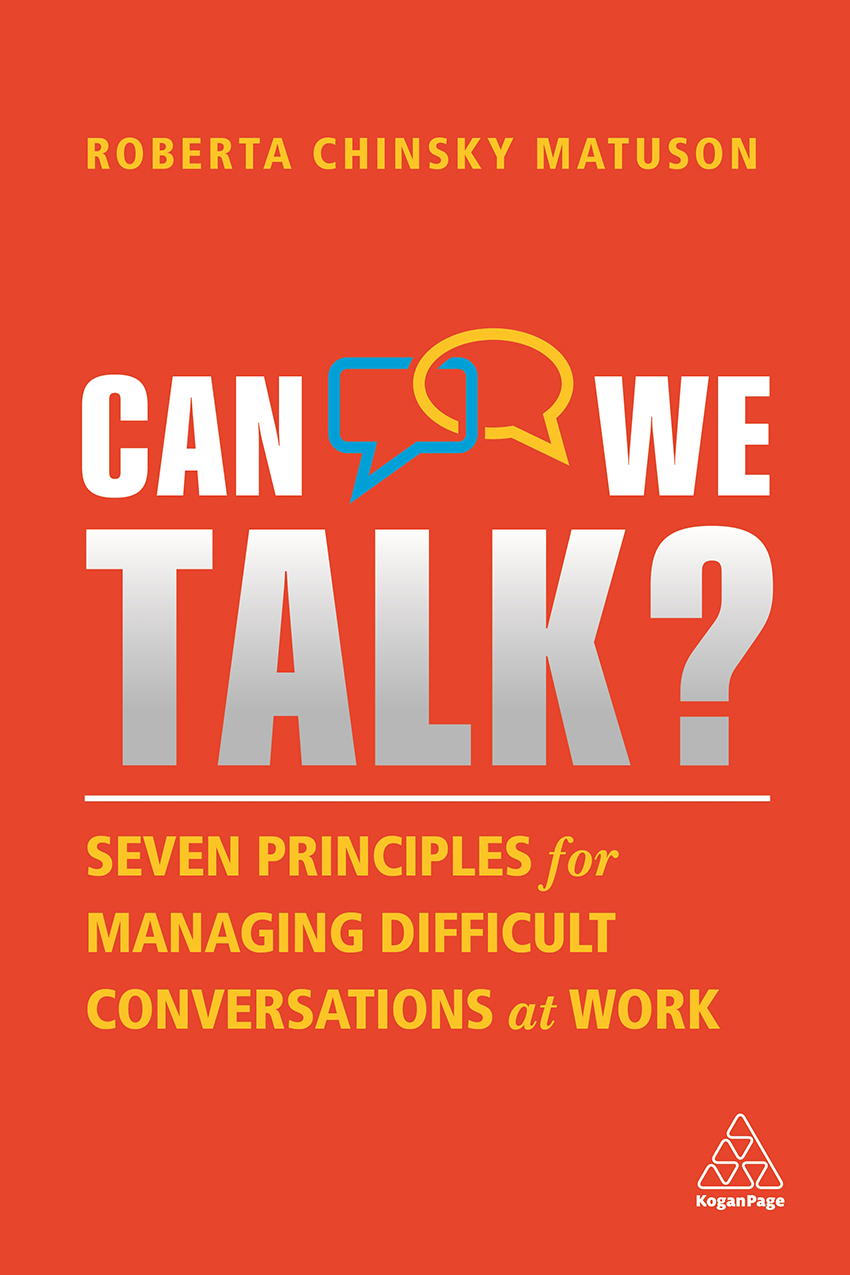By Ray Bert
Can We Talk?: Seven Principles for Managing Difficult Conversations at Work, by Roberta Chinsky Matuson. London: Kogan Page, 2021; 232 pages, $25.95.
You feel you deserve a raise or promotion that hasn’t been forthcoming. One of your direct reports has exhausted your patience with underperformance, and it’s time to put them on notice or let them go. A sexual harassment accusation falls in your lap to investigate. Serious issues in your personal life require changes to your work schedule, but you don’t know how to broach the matter with your stern, old-school boss.
Difficult work situations that call for potentially stressful, difficult conversations abound for most of us. All too often, those conversations are handled poorly — or, for fear of handling them poorly, they are avoided entirely, says author and corporate consultant Roberta Chinsky Matuson. Can We Talk?, her sixth book on leadership, talent management, and other workplace topics, is her prescription for making sure those conversations happen, and with better results.
Matuson has organized her book around seven qualities and, in a nod to catchiness and concision, labeled them confidence, clarity, compassion, curiosity, compromise, credibility, and courage. Hidden within those broad labels, however, are the actual principles that she’s driving at and that drive better conversations.
By curiosity, she means asking questions rather than shutting down when in a difficult discussion. When she talks clarity, she is getting at making your own point clearly but also listening with an open enough mind to hear clearly as well. Credibility in this context boils down to understanding that at work, as elsewhere, your word is only as good as your actions. And so on.
Significantly bolstering the narrative and Matuson’s general thoughts on approaching tough workplace conversations are two key elements. First, she draws liberally from her own experiences with clients of Fortune 500 and other companies as well as her personal experiences, grounding her ideas in a wide variety of realities and specific situations, some of which are bound to ring true for any reader. Second, Matuson wisely includes frequent, detailed narratives written by others, telling about specific conversations from their careers and their successes (and failures).

These stories told by different voices are similarly effective in reminding us how common it is to confront sticky situations — including how commonly they don’t go as planned.
Can We Talk? doesn’t contain much that most would consider groundbreaking — much of the content is what could be called common sense in one form or another. But, crucially, it’s relentless, no-nonsense, hit-the-nail-on-the-head common sense that those of us who aren’t flawless, fearless, and wise every moment of our working lives need to hear from time to time. It’s the mother or brother, close friend or sage stranger who listens to the situation you’re in and tells you clearly something that you already knew but couldn’t quite admit or should have seen but didn’t.
“We have to talk” doesn’t need to inspire dread, and “Can We Talk?” shows us how.



